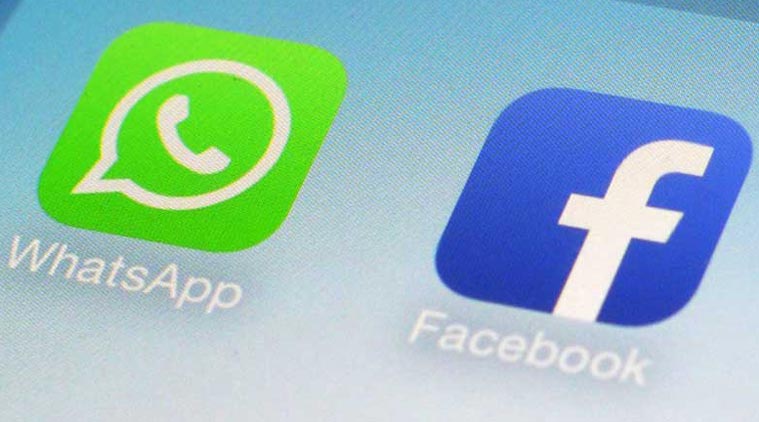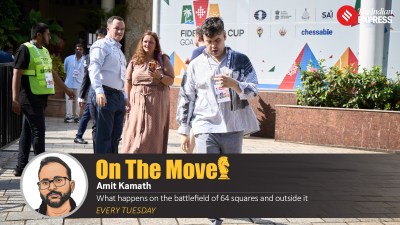Stay updated with the latest - Click here to follow us on Instagram
Supreme Court to Facebook, WhatsApp: Have you shared user details?
The Supreme Court on Wednesday asked Internet giants Facebook and WhatsApp to inform whether they had shared any user details with third parties.
 The Supreme Court on Wednesday asked Internet giants Facebook and WhatsApp to inform whether they had shared any user details with third parties. (File)
The Supreme Court on Wednesday asked Internet giants Facebook and WhatsApp to inform whether they had shared any user details with third parties. (File)
The Supreme Court on Wednesday asked Internet giants Facebook and WhatsApp to inform whether they had shared any user details with third parties. A five-judge Constitution Bench, led by Chief Justice of India Dipak Misra, issued the direction during a hearing of a petition challenging the privacy policy of WhatsApp, which Facebook has acquired.
Kapil Sibal, who represented WhatsApp, said the company only shared the “telephone number, last seen info, device details and registration number” but never any information with any third entity. He was responding to charges that the companies shared private data of users and “Facebook (is) doing targeted marketing with this”.
The petitioners contended that the 2012 WhatsApp privacy policy had said it will not share any information.
Sibal contradicted this saying “the policy did say that it will be shared if there was an acquisition”. He added giants like Google share much more, but the comparison did not go down well with the court. “You can’t say that,’’ said Justice A K Sikri.
Arvind Datar, who appeared for Facebook, termed the allegations as “rhetoric”. “There are over a billion users… Is there a single complaint?’’ he asked. “Even the nine-judge bench (which ruled privacy is a fundamental right) had said it applies only to information one chooses to keep private… my phone number is there with the Bar Association,’’ he said, indicating it was not private information.
The response came as petitioners pointed out the nine-judge bench had ruled informational privacy was integral to privacy and the remedy was available even against non-state actors.
Additional Solicitor-General Tushar Mehta invited the court’s attention to the expert committee constituted under former SC Judge B N Srikrishna to draft a data protection law. He said the Centre was “cognizant of data protection issues and growth of the digital economy while keeping the personal data of citizens private”.
The petitioners’ lawyer, Madhavi Divan, contended India is a lucrative market for data marketers and they are exploiting the gullibility of users, all of whom were not literate enough to give “informed consent”. Sibal added: “We have the right to conduct our business. They have their privacy. What balance, the government committee will decide?”
The Delhi High Court had in November 2016 directed WhatsApp to delete data collected until September 25 that year following app user Karmanya Singh Sareen and Shreya Sethi’s PIL challenging its privacy policy. Another petition was filed before the apex court against the high court judgment. It sought a direction to WhatsApp not to implement its revised 2016 privacy policy and to restrain it from sharing any user info with Facebook.







